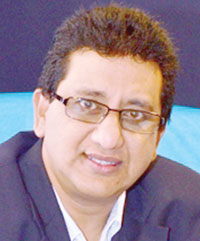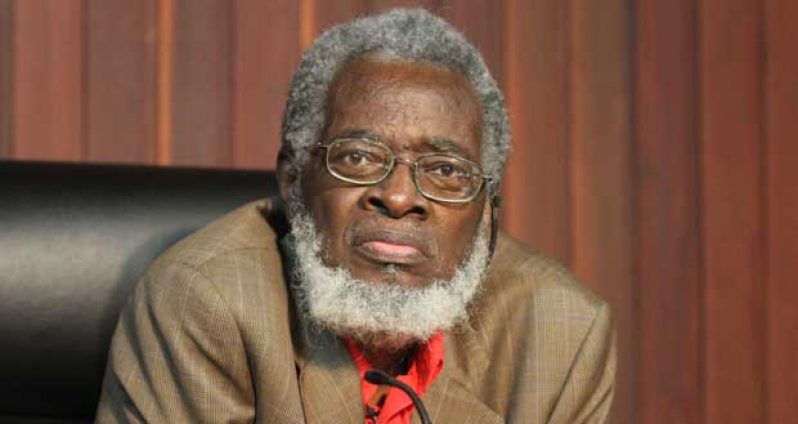THE dissolution of Parliament, according to the Constitution, must be made “within” three months of the date for the General and Regional Elections, set for May 11.And Head of the Presidential Secretariat (HPS), Dr. Roger Luncheon, told the Guyana Chronicle yesterday that as of yesterday the dates on which this can be done fall within the constitutionally prescribed three-month period.
“I suspect that now that he is within the constitutional timeframe we can expect an announcement soon,” he said in an interview with this newspaper yesterday.
According to him, the announcement of a date of dissolution could have been made earlier, but the actual proclamation could not have been done unless it was on a date “within” the three-month period.
He said, “The announcement could have taken place before today, but the actual dissolution cannot take place unless it is on a date within the three-month period.”
Article 61 of the Constitution states that: “An election of members of the National Assembly under Article 60 (2) shall be held on such day within three months after every dissolution of Parliament, as the President shall appoint by proclamation.”

“I suspect that the President would have been advised by his Cabinet colleagues and members of the Executive of the People’s Progressive Party/Civic (the ruling party) on what would be both ideal for the President and, more importantly, what would confirm with the established constitutional provision,” the Head of the Presidential Secretariat said.
Until the dissolution of Parliament, it remains prorogued following President Donald Ramotar’s November 10 proclamation, in the face of a no-confidence motion that would have ended the life of the 10th Parliament and move the country to even earlier elections.
The Head of State’s subsequent announcement of a date for elections came after the objectives of prorogation – dialogue in the face of political impasse – failed.
“It is the President’s call,” Dr. Luncheon stressed, when asked for a conclusive comment on the way forward.
PRIMARY QUESTION
Under the current circumstances the primary line of questioning has been related to Government spending.
However, Attorney General, Anil Nandlall has, in a prior interview, underscored the legal provisions which guard spending and ensure these are done without ‘abuse’, as is being alleged.
With the May 11 elections announcement, Parliament is expected to be dissolved before that. As such, spending is governed by Article 220 (3) of the Constitution.
Once Parliament is dissolved, the relative proclamation will activate the provisions of Article 220, paragraph 3, which states that if Parliament is dissolved before any actions are taken to authorise monies from public funds, “The minister responsible for finance may authorise the withdrawal of such sums from the Consolidated Fund.”
The minister must, however, prove that monies taken from the Consolidated Fund are used for the purpose “of meeting expenditure on the public services.”
The Consolidated Fund in normal circumstances could be accessed only by support from the National Assembly.
The procedure follows that after the new Parliament meets, a statement must be presented to the National Assembly by the Finance Minister or any other minister who was identified by the President. “When the statement has been approved by the Assembly, that expenditure shall be included, under the appropriate heads, in the next Appropriation Bill,” the legislation also reads.
During the period of prorogation, there are also laws that govern Government spending.
According to Nandlall, a combination of Article 219 of the Constitution and the Fiscal Management and Accountability Act, provides that in any financial year the Government is empowered to spend one-twelfth of the Budget of the preceding year in continuing to provide the normal services of the Government of Guyana, until an Appropriation Act is passed.
“This position obtains, whether Parliament is in session or not, or whether there will be Elections or no Elections. Indeed, if Parliament was in session, the National Assembly could not have prevented this constitutional and legal formula in relation to spending during this period (before the new Budget is passed) from being applied,” Nandlall said.
The May 11 elections come more than a year earlier than due, the last General and Regional Elections having been held in November 2011. (Vanessa Narine)



.jpg)











